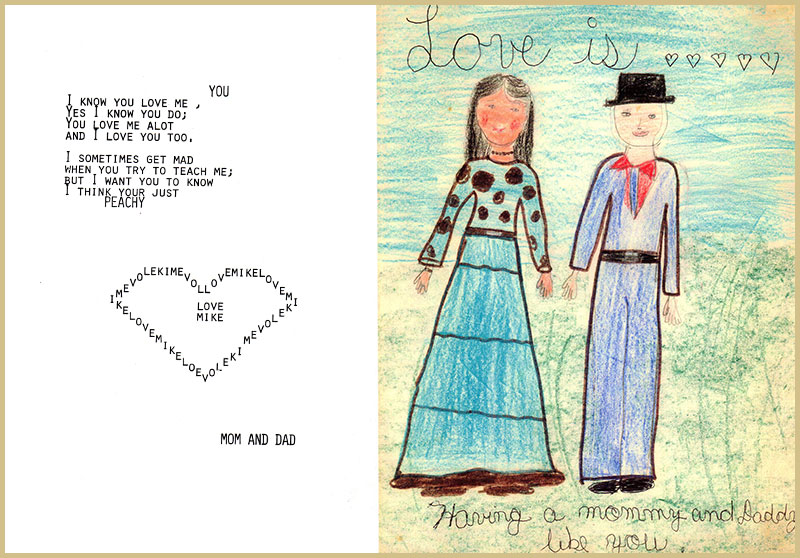THE PRICE OF GOD’S KIND OF LOVE
There is a great price to pay to give unconditional love (agape). We have to be willing to eat a lot of “humble pie,” to forgive (love) seven times seventy in a day when we are the object of hatred, when we are rejected, when we are denied what rightfully seems ours. It means standing up for biblical principles when the price might mean losing our job, alienating our relatives or severing the relationship with a best friend. Recall that John the Baptist was unfairly imprisoned for over a year and then decapitated for telling the king of the land that he was in an adulterous marriage! (See Mark 6:16-20.)

Twentieth-century man is not unique in his inability/unwillingness to give unconditional love (agape). Even the disciples, who walked, talked, and ate with the LORD on a daily basis, didn’t fully understand the sacrificial love exhibited by Christ for their adoption. “For even hereunto were ye called: because Christ also suffered for us, leaving us an example, that ye should follow his steps: Who did no sin, neither was guile found in his mouth: Who, when he was reviled, reviled not again; when he suffered, he threatened not; but committed himself to him that judgeth righteously: Who his own self bare our sins in his own body on the tree, that we, being dead to sins, should live unto righteousness: by whose stripes ye were healed.” (I Peter 2:21-24)
Even those who understood some of the depth of the example which Jesus Christ set, like many today, were unable/unwilling to pay the price to give this type of love. (Remember that at one time, all of the disciples deserted Christ as He went to the cross – BUT they later returned to their walk [love], and most paid a martyr’s death for such. “But all this was done, that the scriptures of the prophets might be fulfilled. Then all the disciples forsook him, and fled.” (Matthew 26:56)
THE DISCIPLES OF JESUS OFTEN FAILED, BUT THEY REGAINED THEIR STRENGTH BY THEIR FOCUS ON JESUS CHRIST;Â WE MUST DO THE SAME
Peter was one of the “inner circle” (Peter, James, John) of the twelve disciples; yet, he, too, struggled with the reality of unconditional (agape) love. We read of him being singled out for specific tasks and tried in ways recorded in the New Testament that we don’t see of the other disciples. Peter, even, at one time, had the faith to walk on water but took his eyes off Jesus and began to sink. It was he who petitioned Jesus: “… Lord, why cannot I follow thee now? I will lay down my life for thy sake. Jesus answered him, Wilt thou lay down thy life for my sake? Verily, verily, I say unto thee, The cock shall not crow, till thou hast denied me thrice.” (John 13:37,38)
In John, Chapter 18, we find that indeed Peter denied knowing Jesus Christ when he was called to witness as being one of His followers at the time of Jesus’ arrest and trial. We often are quick to remember that Peter denied Christ three times, yet, have we been guilty of denying the Word of God by refusing to share the Truth given to us in the Scriptures or to practice sacrificial love in our own homes, the workplace or even in the church?
Love has Several Meanings
In the English language, as noted earlier, we have one word to convey many meanings of love. However, in the Greek language, from which the New Testament is translated, there are several different Greek words to distinguish among the various types of love. For example, in John 21:15, Peter’s answer that he “loved” the Lord was not, “I agapeo [unconditionally] you,” but, “I phileo you.”
- Agape is an unconditional, sacrificial love. (Agape is a noun, agapeo/agapao, verb forms.)
- Phileo is a brotherly type of love that you would extend to a friend.
Jesus didn’t stop here. He asked Peter the same question again, using “agapeo,” with Peter responding a second time with “Yes, Lord, thou knowest that I love (phileo) thee. “He saith to him again the second time, Simon, son of Jonas, lovest [agapeo] thou me? He saith unto him, Yes. Lord; thou knowest that I love [phileo] thee. He saith unto him, Feed my sheep.” (John 21:16)

| There can be a great price to pay to “feed the sheep.” |
PETER, LIKE MANY OF US, DID NOT UNDERSTAND SPIRITUAL LOVE.
Still a third time, Christ asked Peter the same question; however, this time, Jesus asked Peter, “Do you phileo me?” with Peter responding a third time, “I phileo you.”:Â “He saith unto him the third time, Simon, son of Jonas, lovest [phileo] thou me?Â
Peter was grieved because he said unto him the third time, Lovest [phileo] thou me? And he said unto him, Lord, thou knowest all things; thou knowest that I love [phileo] thee. Jesus saith unto him, Feed my sheep.” (John 21:17)
It was at this point that perhaps Peter must have had that burning sensation, that sinking feeling, as he knew that the Lord knew what was in his heart as He does all of us when we manifest love for “show” or for other wrong reasons; or even, as with Peter, the wrong kind of love. This disciple, however, had not hardened his heart. He was convicted. “… Peter was grieved … Lord, thou knowest all things; thou knowest that I [phileo] you …” (John 21:17)
Jesus did not forsake Peter. He knew that Peter would “feed” the people Truth, just as all ministers of the Word must do. Jesus even foretold Peter’s death by crucifixion for the sake of the gospel in verses 18 and 19:
“Verily, verily, I say unto thee, When thou wast young, thou girdedst thyself, and walkedst whither thou wouldest: but when thou shalt be old, thou shalt stretch forth thy hands, and another shall gird thee, and carry thee whither thou wouldest not. This spake he, signifying by what death he should glorify God. And when he had spoken this, he saith unto him, Follow me.” (John 21:18-19)
Â
AN AWESOME RESPONSIBILITY—TO SHEPHERD THE SHEEP!
In both the Old and New Testaments, analogies are made between sheep (people) and the shepherd in the context of teaching what God has commanded. Many are the warnings for those who do not teach Truth. “Woe be unto the pastors [shepherds] that destroy and scatter the sheep … If thou dost not speak to warn the wicked from his way … his blood will I require at thine hand.” (Jeremiah 23:1; Ezekiel 33:8)
Part of loving God’s sheep is not only to nurture them, but to share Scriptural Truth. This is an aspect of agape love many reject, cloaking it [not sharing what the Scriptures teach] under mercy and grace.
Are there areas of the gospel you do not share with friends, neighbors, or even your own family members, because you know that they will be upset with the message and reject you? I know that I have certainly experienced, on many occasions, such thoughts, fears, and the reality of broken relationships for sharing Truths many refused to accept. Not sharing the Scriptures, however, is a form of denying God; of being ashamed of the gospel of Jesus Christ.
Now might be a good time to review a couple of Scriptures that give God’s view on mercy and grace: “By mercy and truth iniquity [sin] is purged: and by the fear of the LORD men depart from evil.” (Proverbs 16:6) “For the grace of God that bringeth salvation hath appeared to all men, Teaching us that, denying ungodliness and worldly lusts, we should live soberly, righteously, and godly, in this present world.” (Titus 2:11,12) Notice that both mercy and grace require a response on our part—to come to holiness in our lives.

WE HAVE AN AWESOME PRIVILEGE AND RESPONSIBILITY—TO HONOR OUR BIBLICAL VOWS.
How many times have we made promises to God that we haven’t kept? Many reading this newsletter have made a promise to love (agapeo) their mate unconditionally: for better for worse until death they do part. However, they have walked away from their one-flesh spouse. Even those who haven’t read the Bible and/or have not been taught that this is the type of commitment made at the wedding altar, all are held accountable by God (saved or not saved), to extend this kind of life-time unconditional love to their spouses. There are no exceptions. The typical marriage vows include statements such as those in the blue box below:
 “…Will thou love her, comfort her, honor and keep her … forsaking ALL others, keep thee only unto her, so long as ye both shall live?” To which we respond: “I, [Judith], take thee, [Doug] to be my wedded husband, to have and to hold from this day forward, for better, for worse, for richer, for poorer, in sickness and in health, to love and to cherish, till death us do part …”
Sadly, over one million people a year in the United States feel they have acceptable reasons to leave their one-flesh spouses. I wonder how many of the justifications for violating their indissoluble covenant would match the test rigors of Jesus, John the Baptist, or the disciples who died their martyrs’ deaths for the sake of the gospel (agape love)? Or how many married couples live together but they do not cherish their mates? The cherish part of the vows is how we apply agape love: “… but nourisheth and cherisheth it, even as the Lord the church.” (Ephesians 5:29) Study also how the Lord cherished Israel as recorded by the prophet Ezekiel: 16:9-14:
” Then washed I thee with water; yea, I thoroughly washed away thy blood from thee, and I anointed thee with oil. I clothed thee also with broidered work, and shod thee with badgers’ skin, and I girded thee about with fine linen, and I covered thee with silk.  I decked thee also with ornaments, and I put bracelets upon thy hands, and a chain on thy neck.  And I put a jewel on thy forehead, and earrings in thine ears, and a beautiful crown upon thine head.  Thus wast thou decked with gold and silver; and thy raiment was of fine linen, and silk, and broidered work; thou didst eat fine flour, and honey, and oil: and thou wast exceeding beautiful, and thou didst prosper into a kingdom.  And thy renown went forth among the heathen for thy beauty: for it was perfect through my comeliness, which I had put upon thee, saith the Lord GOD.” Â
Many may respond, “But I can’t …” when they live in circumstances that are negative; when their spouse doesn’t show love toward them …
Ponder this:Â Is it that you can’t or that you won’t?
God Defines Love for Us:Â
This is love …
- “… God is love; and he that dwelleth in love dwelleth in God, and God in him.” (I John 4:16)
- “If ye love me, keep my commandments.” (John 14:15)
- “… If a man love me, he will keep my words: and my Father will love him, and we will come unto him, and make our abode with him.” (John 14:23)
- “For this is the love of God, that we keep his commandments: and his commandments are not grievous.” (I John 5:3)
- “If a man say, I love God, and hateth his brother [This includes one’s spouse.], he is a liar …” (John 4:20)
- “… love one another; as I have loved you …” (John 13:34)
- “Husbands, love your wives, even as Christ also loved the church, and gave himself for it.” (Ephesians 5:26)
If we have God in us, we will love with the love described above because God is love. Love is not an option that God gives to Christians; we are commanded to love.
WHERE DO GOD’S COMMANDS BEGIN AND END?
“This is my commandment, [not His suggestion] That ye love one another, as I have loved you. Greater love hath no man than this, that a man lay down his life for his friends.” (This includes one’s spouse!) (John 15:12,13) When we speak of the commandments, most people think of the “Ten Commandments,” but there are hundreds and hundreds of God’s commands throughout the Old and New Testaments that we are to obey. His Word is our “command.” Giving and doing good works are for naught if we don’t love those closest to us–our own flesh: our spouse. Study the rich teaching in I Corinthians 13:1-3:
THIS IS NOT LOVE …
“Though I speak with the tongues of men and angels, and have not charity [agape love], I am become as sounding brass, or a tinkling cymbal.”
“And though I have the gift of prophecy, and understand all mysteries, and all knowledge; and though I have all faith, so that I could remove mountains, and have not charity [agape love], I am nothing.” “And though I bestow all my goods to feed the poor, and though I give my body to be burned, and have not charity [agape love], it profiteth me nothing.”
Notice in I Corinthians 13 (above) that the word recorded for love is charity. This is because in this chapter we see how the intangible heart attitude of love is played out in the lives of each of us. It is an analogy to giving to a charity. When we do so, it is a free-will gift AND we expect nothing in return for that gift. However, there is a “tug of war” which struggles within us: “For the flesh lusteth against the Spirit, and the Spirit against the flesh: and these are contrary the one to the other..” (Galatians 4:17) This struggle between two opposites is succinctly given in I Corinthians 13:1-3 (what true “heart love is not”) versus I Corinthians 13:4-8 (what true love is).
THIS IS LOVE …
“Charity [agape love] suffereth long, and is kind; charity [agape love] envieth not; charity [agape love] vaunteth not itself, is not puffed up, Doth not behave itself unseemly, seeketh not her own, is not easily provoked, thinketh no evil; Rejoiceth not in iniquity, but rejoiceth in the truth; Beareth all things, believeth all things, hopeth all things, endureth all things. Charity [agape love] never faileth …” (I Corinthians 13:4-8)
TRUE LOVE NEVER GIVES UP
There is no hole too big that (God’s) love cannot fill, because GOD IS LOVE! He doesn’t want just what we can give, but what we should be. Characteristics of love include the following:
Love is obedience versus sacrifice;
Love is giving versus sacrifice;
Love is commitment versus fickleness.
HOW TO TEST YOUR LOVE FOR YOUR CHILDREN
One of the greatest gifts parents can give their children is to love each other. Unresolved conflict between adults is child’s play; pride, stubbornness – sin. Even if an unsaved mate decides to leave the other, that doesn’t give license to the one remaining to stop loving and cherishing his/her mate. Recall those wedding vows to LOVE and CHERISH under all conditions: for better, for worse; in sickness and health … until death. There may be times when physical abuse necessitates separation (not dissolution), but the prayers and love should continue: “For if ye love them which love you, what reward have ye? do not even the publicans the same? … Be ye therefore perfect, even as your Father which is in heaven is perfect.” (Matthew 5:46,48)
One of the greatest gifts parents can give to their children  is to love each other. |

Adversity tests our love–for others and for the Word of God.Â
This is where the “rubber meets the road.” With God, the “rubber meets the road” when we follow His commandments to love when it hurts; when it doesn’t make sense; when the pain is so bad that we want to unzip our body and walk out of the flesh. Do we love our mates as Christ loved the church and gave Himself for it? Or, do we get to the point where conflict resolves itself in a lawsuit: a civil divorce?
The Lord is exhibited in us through our relationships to others.
- Do we get angry when we have conflict?
- Do we refuse to talk when loved ones irritate us?
- Do we take the Lord’s name in vain?
- Do we refuse to forgive?
- Are we more excited about a mission trip to another country than we are to love our spouse and children and spend quality time daily with them?
- Are we more excited to be with our husband or wife, than we are to attend or participate in a sporting event or by habitually working overtime at the office?
These are selfish, dangerous, wrongful priorities that lead to destructive marital relationships.
God looks at the heart which exhibits through our actions who we really are.Â
Many times, personal goals for financial and career success replace the desire to cherish our spouse. Some spouses may even encourage a mate to participate in ungodly (intimate) activities. This is sin. Pornography and many movies promote wrongful marital sexuality. Defiling the eyes or ears with ungodly hearing or seeing is sin. It is a sin to look at “play acting” sexual activities such as is shown on television or in most movies. (Review and memorize Psalm 101:2-3.)
God sets Biblical priorities for a Christian home as follows: God first, spouse second, family third, and career fourth. Husband and wife, do you submit “… yourselves one to another in the fear of God “? Husband, as spiritual leader of your home, have you washed your wife with the water of the Word today [read the Word to her]? Is your focus giving of yourself to her as Christ gave to the church? Wife, do you reverence your husband, even as did Sarah as she called Abraham, “lord”? We don’t need heroic acts of martyrdom, but heroic acts of marital sacrifice and agape love, to bring about revival in America. (Study Ephesians 5:26-33.)
It is a sin to look at “play acting” sexual activities such as is shown on television or in most movies.

Many times, personal goals for financial and career success replace the desire to cherish our spouse.
God sets Biblical priorities for a Christian home as follows:Â God first, spouse second, family third, and career fourth.
- Husband and wife, do you submit “… yourselves one to another in the fear of God”?
- Husband, as spiritual leader of your home, have you washed your wife with the water of the Word today [read the Word to her]?
- Is your focus giving of yourself to her as Christ gave to the church?   Â
- Wife, do you reverence your husband, even as did Sarah as she called Abraham, “lord”?Â
We don’t need heroic acts of martyrdom, but heroic acts of marital sacrifice and agape love, to bring about revival in America. (Study Ephesians 5:26-33.)
We don’t need heroic acts of martyrdom, but heroic acts of marital sacrifice and agape love, to bring about revival in America.

THE SUNDOWN RULE:
If all couples would resolve conflict
each day before they went to bed,
there would be a zero divorce rate!
Memorize Ephesians 4:26.
Only you and God know how you “feel,” how you react to others; i.e., your heart attitude.
- Do you wake up angry?
- Do you go to bed angry?
- Do you “fly off the handle” easily with your spouse?
- Do you bring up issues that should have been settled years ago?
Study Ephesians 4:26: “Be ye angry, and sin not: let not the sun go down upon your wrath.” If all couples followed the principles in this Scripture by resolving conflict each day before they went to bed, there would be a zero divorce rate.
- Are there unbiblical conditions to your love?
- Do you set time limits for the healing of broken relationships?
- Do you set unbiblical limits for your love with your spouse?
An affirmative answer to these questions would give a mark of failure on God’s score sheet of agape love. “Ye are of God, little children, and have overcome them: because greater is he that is in you, than he that is in the world.” (I John 4:4) “… God is love; and he that dwelleth in love dwelleth in God, and God in him” (I John 4:16) “… If we love one another [This includes our spouse.], God dwelleth in us, and his love is perfected in us.” (I John 4:12)
CHARACTERISTICS OF AGAPE (LOVE) EXHIBITED BY CHRIST THAT WE ARE TO USE AS A PATTERN FOR OUR LIFESTYLES
- Sacrificial (John 3:16);
- Ministers (Mark 10:45);
- Servant (Philippians 2:5);
- Never ends (Jeremiah 31:3);
- Never be separated from it (Romans 8:35-39).
We don’t need heroic acts of martyrdom, but heroic acts of marital sacrifice and agape love, to bring about revival in America. (Study Ephesians 5:26-33.)



